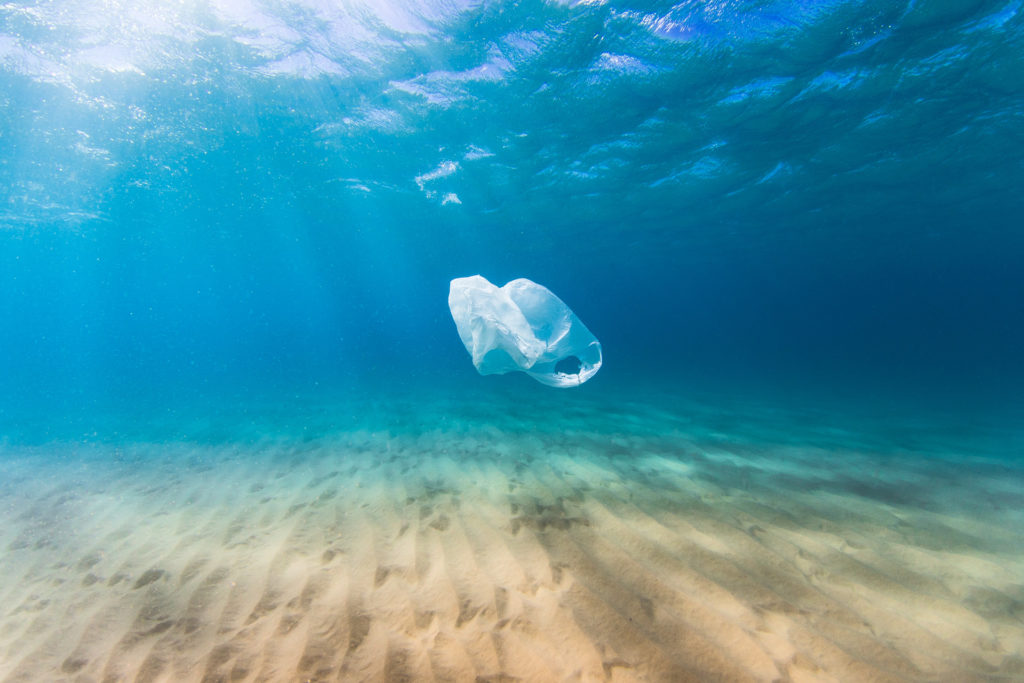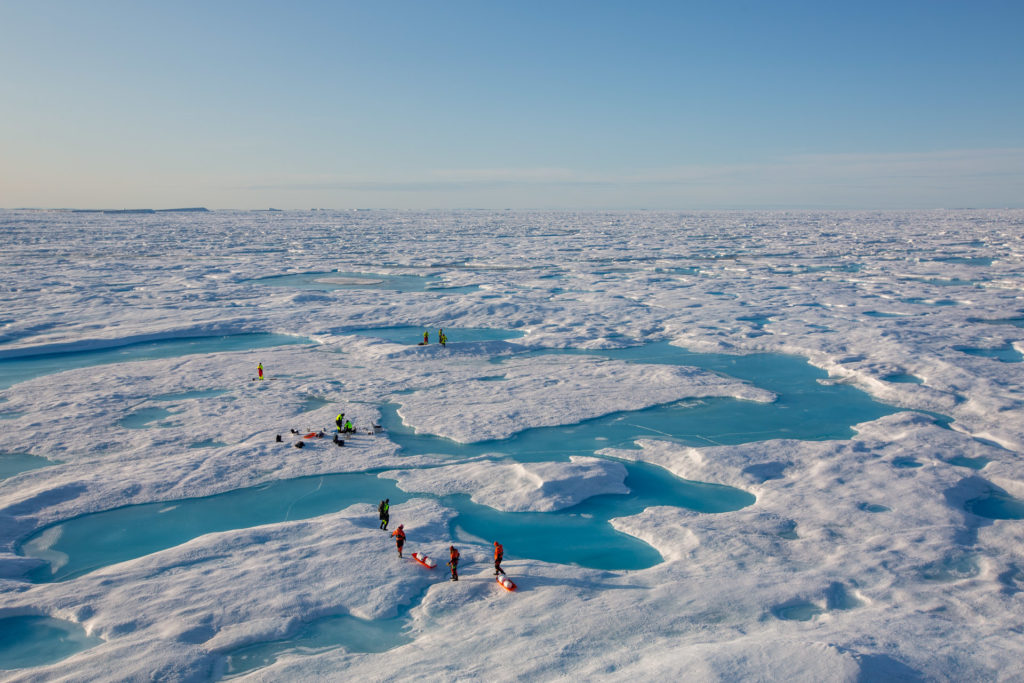Science
.
.
.
REV Ocean’s ambition is to make the ocean healthy. We will focus on gathering new data and knowledge to better understand the impacts of human activity on the ocean and to use the knowledge to create practical solutions to improve ocean health.
The REV Ocean Science and Solutions programme (SPP) focuses on three priority areas:
- Plastic Pollution
- Climate Change Impacts
- Unsustainable Fishing
Five to 12 million tons of plastic are entering the ocean each year, with an increase of an order of magnitude predicted by 2025. Marine plastic debris is ubiquitous in the marine environment, with the large ocean gyres acting to gather this material in oceanic waters. Plastic debris has been recorded as impacting at least 700 marine species through entanglement and ingestion and is sufficient to contribute to extinction risk in some species (e.g. monk seals). Plastics are incorporated into the base of the food chain and have been found throughout the tissues of human food fish such as anchovies and sardines.
However, many aspects of the distribution of marine plastic debris, including microplastics, its impacts on marine species and the role of plastics in exposure of marine life, and ultimately humans, to toxic chemicals are unclear. The result of this is that identifying effective solutions to the marine plastic pollution problem is difficult. The influence of plastics on processes at the ecosystem level are not understood, although it is suspected that they may represent a planetary-boundary threat (largely irreversible impact on Earth-system scale processes). The new knowledge acquired by REV Ocean will contribute to the negotiations and implementation of the UN Global Plastics Treaty.

Improved resolution of the distribution and transport of plastics in the ocean through continuous monitoring, specific research activities and technological innovation (e.g. to collect and measure concentrations of micro- and nano-plastics). This knowledge will enable the development of business and management solutions to the marine plastic pollution problem.
Assessment of the impacts of plastics on ecosystems and ecosystem functions (e.g. the ocean carbon cycle) to elevate and drive the political and legal process to eliminate input of plastics into the ocean, for example through the UN Global Plastics Treaty currently under negotiation.
Assessment of whole life-cycle risk of plastics on threatened marine species for identification of specific solutions to mitigate these risks, including technical innovations leading to long-term business solutions (e.g. development of perishable fishing gear; targeted and economically sustainable removal of plastic debris).
Assessment of the toxicological risks of marine plastics to the health of marine ecosystems and, in turn, to humankind, to identify how to mitigate such risks through technological, commercial, political and other solutions.
Greenhouse gas emissions are now driving large-scale physical, biological and biogeochemical changes throughout the ocean. Effects include ocean warming, acidification and deoxygenation and have already resulted in significant shifts in populations of marine species (e.g. krill), damage to marine ecosystems (e.g. coral reefs, regime shifts of kelp forests) and habitat loss with associated loss of ecosystem services (e.g. Arctic sea-ice). Yet, understanding the full impacts of climate change on marine ecosystems and at the Earth-system level, including climate feedbacks, is still lacking in observations and studies linking cause to effect.
Therefore, predicting how the ocean will change in the future and how to mitigate such changes is extremely difficult. The REV Ocean Science and Solutions Programme will focus on identifying the risks arising from climate change to Earth system-level processes (e.g. processes that feedback positively or negatively to atmospheric CO2-levels) as well as to marine ecosystems in the context of ecosystem service provision. The aim will be to help drive climate negotiations at an international and national level and to identify strategies to mitigate climate change and its negative impacts on ecosystems and humankind.
Key areas of research include:
Research on processes within the ocean that may feedback strongly to the atmosphere and climate, especially tipping-points to drive implementation of CO2-emission reduction programs through policy change at national, regional and international levels.
Understanding the biological carbon pump, especially the active transport of carbon into the deep ocean. This will ensure that human activities, such as fishing, are managed so that the biological carbon pump is maintained or enhanced. This research will also ensure that active biological transport of carbon into the deep sea is accurately represented in Earth system models used for predicting the effects of climate change in the future.
Research into how marine ecosystems can be used to mitigate climate change (e.g. blue carbon, restoration) so that they can be included in carbon accounting and managed to maximize their impact on CO2-sequestration. This should enable a framework for developing new financial mechanisms or commercial approaches to habitat conservation, restoration or cultivation.
Research on the positive and/or negative impacts of Carbon Dioxide Removal approaches, such as sinking kelp to the deep sea. Understanding the consequences of such methods will contribute to their sustainable development and legislation.
Research to understand the likely impacts of climate change on other aspects of biodiversity, ecosystem function and service provision and to identify solutions to mitigate such impacts (e.g. restoration of coral reefs, specimen banks of endangered coral species).
Marine capture fisheries, including finfish, shellfish (crustaceans and molluscs) and other invertebrates, are an essential element of human nutrition and contribute to global food security. With a growing human population, demand for fish is set to rise by at least 30 % by 2050. However, up to two-thirds of the world’s fish stocks are overfished and the World Bank estimates that, in economic terms, $83 billion is lost per annum as a result of poor fisheries management. There are multiple drivers of overfishing, including that 23 % of global fisheries are not subject to any form of scientific assessment and that illegal fishing is still responsible for about a fifth of the world’s fish catches.
Certain fisheries are associated with significant damage to marine ecosystems (e.g. bottom trawling on cold-water coral habitat) as well as bycatch of non-target species, leading, in some cases, to a threat of extinction (e.g. long lining and albatrosses and petrels in the Southern Hemisphere). REV Ocean will undertake research to increase the sustainability of fishing both in terms of catches of fish and environmental impacts of fishing, including for new fisheries resources. The aim is to secure sustainable supplies of fish, whilst ensuring the ocean is healthy and able to support all the ecosystem services on which we rely. Key areas of research include:
Key areas of research include:
Research to improve the assessment of fisheries resources to identify effective changes in policy, management or enforcement practices, including novel technical advances (e.g. use of AI on big data) in fisheries monitoring and surveillance, to reduce or eliminate overfishing.
Research to map fisheries risks to non-target species and habitats in order to identify innovative strategies and commercially sustainable technical solutions to prevent destructive fishing impacts.
Research to assess how/if to exploit commercially new fisheries resources without risking significant environmental impacts (e.g. mesopelagic fisheries) to provide the necessary scientific data for the development of policy.
Predict change in commercial fish and shellfish populations induced by climate change to assess changes in their vulnerability and their ability to act as carbon sinks. This information will feed into future predictive models of fisheries management and economics.

